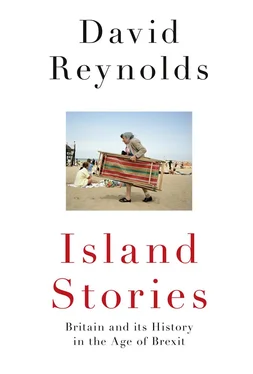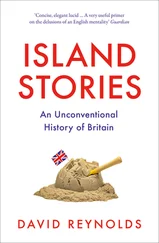It became an explicit theme of Whig political rhetoric during the first half of the eighteenth century that the ‘national interest’ required Britain to maintain a ‘balance of power’ on the Continent, through judicious alliances and selective intervention. Yet there were many who disagreed. One critic claimed in 1742 that the idea of it ‘being the Honour of England to hold the balance of Europe has been so ignorantly interpreted, so absurdly applied, and so perniciously put into practice, that it has cost this Nation more lives, and more money, than all the national Honour of that kind in the World is worth’. [21] Конец ознакомительного фрагмента. Текст предоставлен ООО «ЛитРес». Прочитайте эту книгу целиком, купив полную легальную версию на ЛитРес. Безопасно оплатить книгу можно банковской картой Visa, MasterCard, Maestro, со счета мобильного телефона, с платежного терминала, в салоне МТС или Связной, через PayPal, WebMoney, Яндекс.Деньги, QIWI Кошелек, бонусными картами или другим удобным Вам способом.
The Tory politician and political philosopher Lord Bolingbroke offered an alternative strategy. ‘Great Britain is an island,’ he insisted. ‘The sea is our barrier, ships are our fortresses, and the mariners that trade and commerce alone can furnish are the garrisons to defend them.’ Bolingbroke did not totally rule out sending soldiers to the Continent. ‘Like other amphibious animals, we must come occasionally on shore,’ he admitted, ‘but the water is more properly our element, and in it, like them, as we find our greatest strength, so we exert our greatest force.’ [22] Конец ознакомительного фрагмента. Текст предоставлен ООО «ЛитРес». Прочитайте эту книгу целиком, купив полную легальную версию на ЛитРес. Безопасно оплатить книгу можно банковской картой Visa, MasterCard, Maestro, со счета мобильного телефона, с платежного терминала, в салоне МТС или Связной, через PayPal, WebMoney, Яндекс.Деньги, QIWI Кошелек, бонусными картами или другим удобным Вам способом.
Emerging here was what would prove to be a lasting tension in debates about British foreign policy between a ‘continental’ and a ‘maritime’ strategy. The latter became more plausible after 1760 under a monarch who did not share his predecessors’ orientation towards Hanover, both personally and politically. What’s more, Britain’s trade had now shifted away from northwest Europe to the Mediterranean, East Indies, Caribbean and the American colonies, in an increasingly profitable nexus of goods, commodities and people-trafficking. The major wars against France in the second part of the ‘long eighteenth century’ – 1756–63, 1778–83, 1793–1802 and climacterically 1803–15 – were struggles for global empire, especially in North America and the Indian sub-continent. Indeed Britain was now, to quote historian Peter Marshall, ‘a nation defined by Empire’. [23] Конец ознакомительного фрагмента. Текст предоставлен ООО «ЛитРес». Прочитайте эту книгу целиком, купив полную легальную версию на ЛитРес. Безопасно оплатить книгу можно банковской картой Visa, MasterCard, Maestro, со счета мобильного телефона, с платежного терминала, в салоне МТС или Связной, через PayPal, WebMoney, Яндекс.Деньги, QIWI Кошелек, бонусными картами или другим удобным Вам способом.
Yet also still defined by its relations with the rest of Europe: every one of these wars entailed threats to the security of the British homeland, above all the menace of invasion by Napoleon in 1803–5. But except for the crisis years of 1812–15, Britain did not deploy large armies on the continent – using instead its commercial wealth and stable national debt to employ foreign mercenaries as its contribution to continental alliances. In 1760, for instance, at the height of the Seven Years’ War, there were 187,000 soldiers in Britain’s pay yet the contingent of British and Irish troops sent to Germany numbered only 20,000. [24] Конец ознакомительного фрагмента. Текст предоставлен ООО «ЛитРес». Прочитайте эту книгу целиком, купив полную легальную версию на ЛитРес. Безопасно оплатить книгу можно банковской картой Visa, MasterCard, Maestro, со счета мобильного телефона, с платежного терминала, в салоне МТС или Связной, через PayPal, WebMoney, Яндекс.Деньги, QIWI Кошелек, бонусными картами или другим удобным Вам способом.
In the seven wars against France from 1688 to 1815, the British were diplomatically isolated just once, when Spain and the Dutch joined France in 1779–80. As a result, Britain lost control of the seas and, with this, its American colonies.
These conflicts had a profound effect on national identity. ‘Great Britain’ – the union of England and Wales with Scotland in 1707 – was an invented nation, forged and hardened through these conflicts. ‘A powerful and persistent threatening France became the haunting embodiment of that Catholic Other which Britons had been taught to fear since the Reformation,’ historian Linda Colley has observed. ‘Confronting it encouraged them to bury their internal differences in the struggle for survival, victory and booty.’ [25] Конец ознакомительного фрагмента. Текст предоставлен ООО «ЛитРес». Прочитайте эту книгу целиком, купив полную легальную версию на ЛитРес. Безопасно оплатить книгу можно банковской картой Visa, MasterCard, Maestro, со счета мобильного телефона, с платежного терминала, в салоне МТС или Связной, через PayPal, WebMoney, Яндекс.Деньги, QIWI Кошелек, бонусными картами или другим удобным Вам способом.
The global struggle against France between 1793 and 1815 (over twice as long as both of Britain’s twentieth-century world wars combined) revived a real threat of invasion. A small French force landed in Wales in 1797, followed by more substantial invasions of Ireland in 1796 and 1798 – one of the main reasons for incorporating Ireland into the United Kingdom in 1801. Indeed from 1798 to 1805 the invasion of England was Napoleon’s main strategic aim. ‘Eight hours of night in our favour would decide the fate of the universe,’ he blustered. ‘We have six centuries of insult to avenge.’ Britain was mobilised as never before. In 1804–5, nearly a tenth of the country’s 10.5 million people were directly involved in national defence. In these years, France became Britain’s bogeyman, with fears fanned by propagandists. ‘That perfidious, blood-thirsty nation, the French,’ one pamphlet claimed in 1793, was ‘the source of every evil you have experienced for a century past.’ [26] Конец ознакомительного фрагмента. Текст предоставлен ООО «ЛитРес». Прочитайте эту книгу целиком, купив полную легальную версию на ЛитРес. Безопасно оплатить книгу можно банковской картой Visa, MasterCard, Maestro, со счета мобильного телефона, с платежного терминала, в салоне МТС или Связной, через PayPal, WebMoney, Яндекс.Деньги, QIWI Кошелек, бонусными картами или другим удобным Вам способом.
Читать дальше












